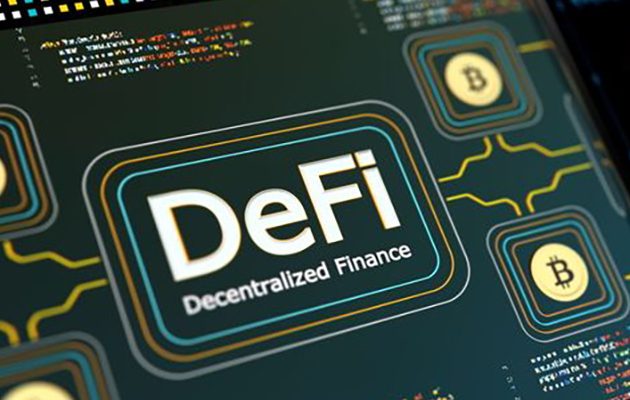Global finance could experience a new phase of profound digitalization transformation in the coming years with tokenization. In an outlook note, Citi Bank estimates that by 2030, securities issued in token format will amount to $4 trillion.
Central bank money could also digitize a little more with the issuance of digital currencies or MNBC (CBDC). Citi anticipates the value of these currencies to be $5 trillion by 2030.
Strong interest in DeFi from supervisors
The transformation that is looming for the giants of traditional finance therefore consists in using the blockchain, tokens and programmable contracts (smart contracts) to increase their operational efficiency.
However, tokenization promises upheavals, starting with disintermediation. This has already started in the world of crypto-assets with the appearance of autonomous and automated DeFi protocols.
On the regulatory level, decentralized or disintermediated finance also heralds in-depth transformations. In Europe, the supervision of crypto players and digital assets is provided by MiCA.
On the other hand, DeFi does not fall within its scope – like NFTs, non-fungible tokens. Several regulators are therefore scrambling to consider ways to regulate DeFi and its participants.
Specific risks to manage
This is the case of the ACPR, the Prudential Control and Resolution Authority, in France. It has just launched a public consultation. Its objective: to imagine avenues for the regulatory framework of DeFi with “specific risks”.
The subject of regulation has been a hot topic in the sector in recent months. The reasons are obvious: “the fragilities of the crypto-asset ecosystem, recalled by several recent bankruptcies (Terra-Luna, FTX, etc.)”.
The bankruptcies, however, only concern centralized crypto services. DeFi, on the other hand, stood out for its resilience – except no doubt with regard to cyber risk with a majority of hacks recorded in 2022.
“We cannot predict the place that decentralized, or rather disintermediated, finance will occupy in the future within the financial ecosystem. On the other hand, we know that its development must be accompanied by an appropriate regulatory framework with the key to a controlled use of technologies, guaranteeing the stability of the financial system”, justifies Nathalie Aufauvre, Secretary General of the ACPR.
The security weakness of DeFi
Based on a series of interviews, the Autorité produced a discussion paper. This identifies “several possible avenues of regulation”. These options include security standards, both at the infrastructure level and smart contracts.
The ACRP, for example, proposes the establishment of a “certification mechanism relating to the security of computer code”. It also suggests “better regulating the provision of services and user access” to DeFi.
These regulatory possibilities remain at this stage of reflection and do not express “a definitive position of the ACPR”. They are above all intended to constitute a working basis for the public consultation open until May 19.
“We encourage all stakeholders to take part in this strategic reflection for the future of financial services,” underlines Olivier Fliche, Director of the ACPR’s Fintech-Innovation Division.
